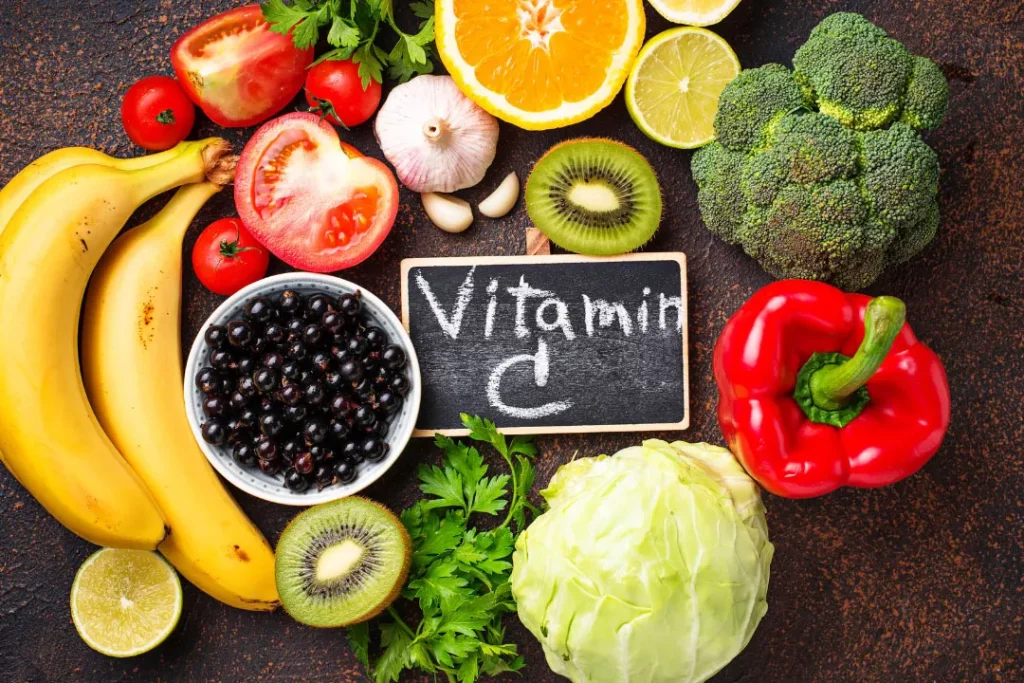Acerola is a tropical fruit native to the Caribbean, South America, and Central America. It is also known as the Barbados cherry or the West Indian cherry. The fruit is tiny, bright red or orange, and has a sour and tart flavor. Because of its high vitamin C concentration and other health advantages, acerola is considered a superfood. Acerola has grown in popularity as a dietary supplement in recent years. The nature of acerola, its health advantages, ideal dosage, side effects, potential substance interactions, and the best responsible usage of this nutritional supplement will be discussed in this article.
You May Also Like:
Adrenal Extract: Benefits, Dosage, Side Effects, Drug Interactions, and Other Important Information
Nature of Acerola
Acerola is a small fruit that can be red or orange fruit and it grows on a small shrub or tree. The fruit is around the size of a cherry and it tastes sour and acidic. Acerola is high in vitamin C, with up to 1,700 milligrams per 100 grams of fruit. It also contains vitamin A, thiamine, riboflavin, niacin, calcium, and iron. Acerola also includes antioxidants such as anthocyanins, carotenoids, and flavonoids, which help to protect the body from oxidative stress.

Health Benefits of Acerola
Acerola provides a variety of health advantages, including:
- Improves Immunity: Acerola is high in vitamin C and hence can help to enhance the immune system. Vitamin C increases the formation of white blood cells, which help the body fight infections and disorders.
- Reduces Inflammation: Acerola contains antioxidants that help the body fight inflammation. Chronic inflammation has been related to many health conditions, including cancer, heart disease, and Alzheimer’s.
- Improves Skin Health: The vitamin C in acerola promotes collagen formation, which is necessary for healthy skin. Collagen is a protein found in the skin that provides it with elasticity, firmness, and a youthful appearance.
- Cancer Prevention: Acerola contains antioxidants that protect the body from cancer-causing free radicals. In vitro studies have revealed that acerola extract inhibits the proliferation of cancer cells.
- Lowers Blood Sugar: Because acerola has a low glycemic index, it does not cause blood sugar levels to surge. This makes it a perfect fruit for diabetics or anyone attempting to control their blood sugar levels.
- Promotes Heart Health: Acerola’s antioxidants lower oxidative stress in the body, which is a key risk factor for heart disease. Acerola extract has been found in studies to decrease blood pressure and enhance blood vessel function.

Chemistry of Acerola
Acerola is high in nutrients, particularly vitamin C, which aids the immune system, collagen formation, and iron absorption. Acerola also includes bioactive components such as carotenoids, flavonoids, and phenolic acids in addition to vitamin C. These chemicals’ antioxidant capabilities may help protect cells from free radical damage.
Physiological Mechanisms of Action of Acerola
Acerola’s health advantages are linked to its high vitamin C concentration as well as other bioactive components. As previously mentioned, vitamin C is a water-soluble vitamin that serves as an antioxidant in the body, assisting in the protection of cells from free radical damage. It also plays an important part in the creation of collagen, the body’s main structural protein that is necessary for the health of the skin, bones, and joints.
Besides, acerola has antioxidant and collagen-synthesis capabilities. Its high vitamin C concentration also aids the immune system by promoting the creation of white blood cells, which aid in the battle against infection and disease. Vitamin C may also help reduce inflammation in the body, which is linked to a variety of chronic conditions such as heart disease and cancer.
Carotenoids, flavonoids, and phenolic acids, among other bioactive substances in acerola, have antioxidant capabilities that may help protect cells from oxidative stress and inflammation. These chemicals may also aid in immune system support, inflammation reduction, and protection against a variety of chronic diseases.

Optimal Dosage of Acerola
The ideal acerola dosage is determined by various parameters, including age, gender, weight, and health status. The daily recommended amount of vitamin C for individuals is 75-90 milligrams. However, some research suggests that larger vitamin C doses may be beneficial for specific illnesses, such as colds and flu.
Acerola supplements come in a variety of forms, such as capsules, tablets, powders, and liquids. The dose of acerola varies depending on the form and concentration of the supplement. It is critical to read the label carefully and follow the dose instructions.
Side Effects of Acerola
When ingested in moderation, acerola is typically safe for most individuals. Some people, however, may encounter negative effects when taking excessive quantities of acerola pills. Acerola’s most common negative effects include:
Acerola supplements may induce stomach distress, nausea, and diarrhea, particularly if taken on an empty stomach.
Some people may be allergic to acerola if they are allergic to other fruits in the same family, such as cherries or peaches. Itching, swelling, and difficulty breathing are all symptoms of allergic responses.
Acerola supplements may impair the absorption and effectiveness of certain medications, including antibiotics, blood thinners, and chemotherapy therapies. Before consuming acerola supplements, it is critical to contact a healthcare expert, especially if you are taking any medications.
Potential Substance Interactions with Acerola
Acerola supplements may interact with the following substances:
1. Iron: Acerola has high levels of vitamin C, which aids in iron absorption in the body. High doses of acerola supplements, on the other hand, may cause iron overload in persons that have certain illnesses such as hemochromatosis because they already have excessive iron content in their body, to begin with. 2. Anticoagulants: Acerola supplements may reduce the effectiveness of anticoagulant drugs like warfarin by increasing their blood-thinning effects.
3. Chemotherapy medications: Acerola supplements may reduce the efficacy of chemotherapy medications like cyclophosphamide by increasing their toxicity to cancer cells.
Best Responsible Uses of Acerola
Acerola pills should be taken as a dietary supplement to help with general health and well-being. It is critical to select high-quality supplements from reputed brands and to adhere to the suggested dosage guidelines. Acerola supplements should not be used in place of a well-balanced and varied diet.

Acelora: Conclusion
Acerola is a small red fruit with a sour taste and a high concentration of vitamin C. This supplement can help to improve the body’s immune system and reduce oxidative stress on cells as an excellent antioxidant. Acerola also has bioactive components like carotenoids, flavonoids, and phenolic acid which boost the antioxidant capabilities. Additionally, acerola supplements can improve blood pressure and enhance blood vessel function due to their antioxidant properties. You are highly recommended to seek advice from medical professionals to know the appropriate use of acerola supplement and the dosage that is right for you. It is also advised that you purchase a superior acerola supplement from a trustworthy seller to ensure its quality.
References:
- Acerola, An Untapped Functional Superfruit: A Review on Latest Frontiers. Link: https://www.ncbi.nlm.nih.gov/pmc/articles/PMC6098779/
- The Protective Effect of Acerola (Malpighia emarginata) Against Oxidative Damage in Human Dermal Fibroblasts Through the Improvement of Antioxidant Enzyme Activity and Mitochondrial Functionality. Link: https://pubmed.ncbi.nlm.nih.gov/28815233/
Important Note: The information contained in this article is for general informational purposes only, and should not be construed as health or medical advice, nor is it intended to diagnose, prevent, treat, or cure any disease or health condition. Before embarking on any diet, fitness regimen, or program of nutritional supplementation, it is advisable to consult your healthcare professional in order to determine its safety and probable efficacy in terms of your individual state of health.
Regarding Nutritional Supplements Or Other Non-Prescription Health Products: If any nutritional supplements or other non-prescription health products are mentioned in the foregoing article, any claims or statements made about them have not been evaluated by the U.S. Food and Drug Administration, and such nutritional supplements or other health products are not intended to diagnose, treat, cure, or prevent any disease.


